Bob Rafelson finally exiled himself, unable any longer to countenance the consuming nature of his filmmaking. As director, producer and writer in the Sixties and Seventies, he had helped create both New Hollywood’s fabled moment of auteur freedom and its greatest star, Jack Nicholson, in films such as Easy Rider and Five Easy Pieces.
But he spent his last 20 years simply helping to raise his two children in Aspen, Colorado, “alive but lonely”, he told Esquire. When the magazine visited in 2019, they found him still innately combative, in constant pain from heedless adventures reflected in his favourite of his films, the Victorian explorer epic Mountains of the Moon, and moved to tears by his work’s themes of betrayal and dissatisfaction. Like his Aspen neighbour Hunter S Thompson, directing peer Monte Hellman (Two-Lane Blacktop) and wild Jack, he couldn’t face playing the fierce artistic game he began to the end. Hellman was counted out by the industry, and shotgun suicide Thompson preferred death. Rafelson and Nicholson, retired since 2010, chose life.
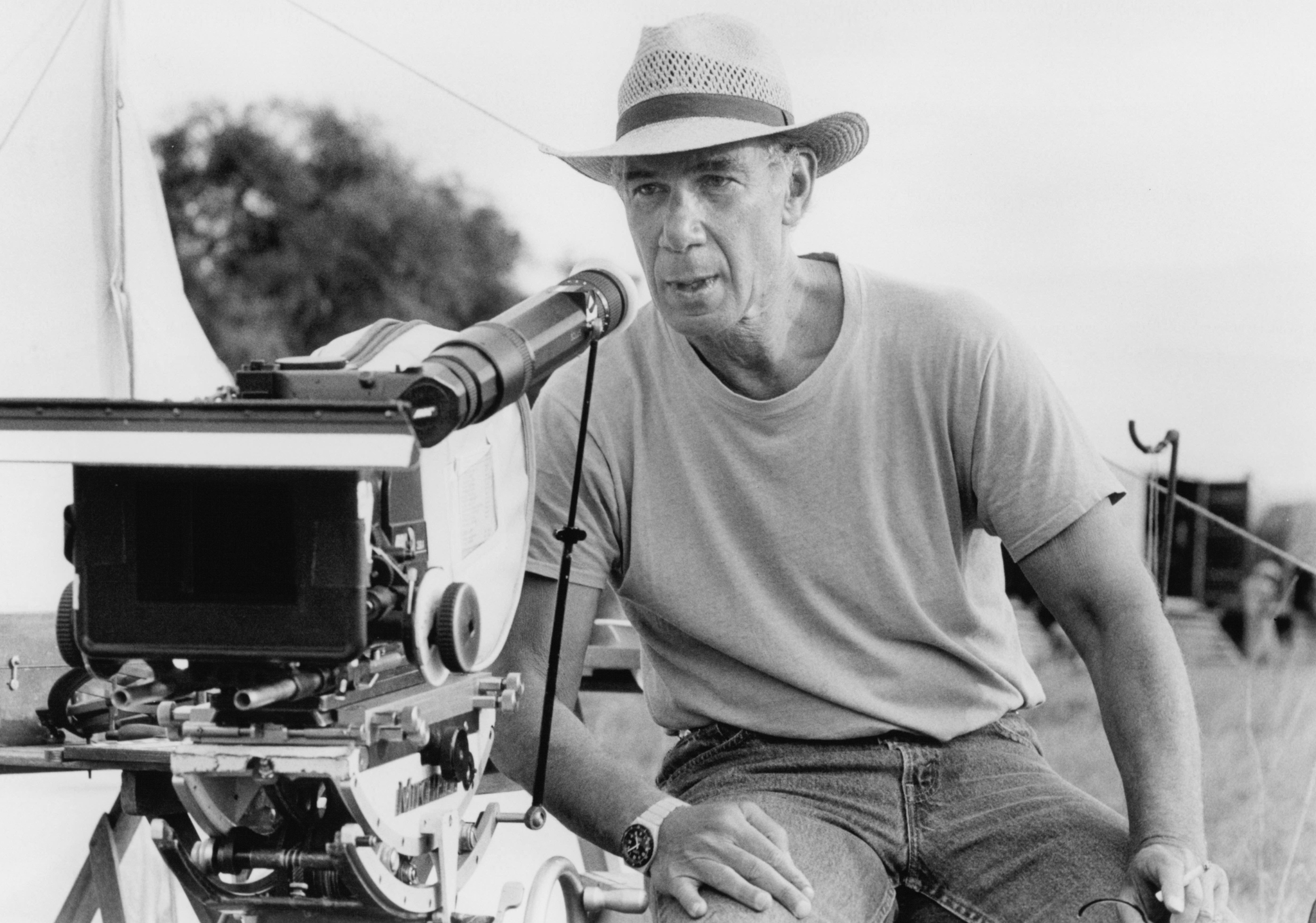 When I met Rafelson for The Independent in the following 1997 encounter, he had just made his final film with Nicholson, Blood and Wine. Michael Caine, then all but retired, took the consumptively, seedily evil part which inspired his acting comeback for a further quarter-century; Jennifer Lopez, blazing with youthful eroticism, was the last of the director’s discoveries. But the film was all Rafelson: New Hollywood in winter, Bruce Dern’s casino dreamer in The King of Marvin Gardens grown still more desperate and doomed.
When I met Rafelson for The Independent in the following 1997 encounter, he had just made his final film with Nicholson, Blood and Wine. Michael Caine, then all but retired, took the consumptively, seedily evil part which inspired his acting comeback for a further quarter-century; Jennifer Lopez, blazing with youthful eroticism, was the last of the director’s discoveries. But the film was all Rafelson: New Hollywood in winter, Bruce Dern’s casino dreamer in The King of Marvin Gardens grown still more desperate and doomed.
The Independent, 1997
Bob Rafelson bears down on you in the middle of a sentence. Almost bulbous eyes peer at you closely, his body nears yours like a challenge. Then he's off, stalking to the hotel balcony, seeking relief in the cold morning air. He veers between barely suppressed boredom and sudden interrogation of his questioner, ranging round his room as if caged, anything to keep things off-balance, to shake up the tedium, to release the emotion that the need to politely promote his new film Blood and Wine is suppressing. Now 63, he's a director of legendary spikiness and talent. Meet him, and it's easy to credit the tales of his stormy confrontations with industry powers: overturning Universal mogul Lew Wasserman's desk, turning on a studio spy on the set of the Robert Redford vehicle Brubaker in 1980 in a white-hot fury (a confrontation that allowed the studio to sack him, and hurt his career).
It's easy, too, to imagine him bulling round sets, bringing his early classics to life: Head (1968), Five Easy Pieces (1971), The King of Marvin Gardens (1973) and Stay Hungry (1976), unpredictable films about quests for meaning in odd corners of the States. When not directing, he was producing, using the profits from The Monkees, which he created, to back Easy Rider and give a home to the talents its unexpected success let run riot in a reeling Hollywood – Dennis Hopper, Jack Nicholson, Peter Bogdanovich, the whole counter-culture crew.
Nicholson, alone, is still with him. They met in the Sixties. It was Nicholson who wrote Head, Rafelson's deconstruction of The Monkees. It was Rafelson who convinced Nicholson that his acting had a future. In the heat of that first, drug-fuelled collaboration, they talked about making more films together, a joint, lifetime biography. Five Easy Pieces, The King of Marvin Gardens, The Postman Always Rings Twice (1981) and Man Trouble (1992) followed, a partnership continued in this week's Blood and Wine. It's a collaboration almost equal to Scorsese's with De Niro. Rafelson is reluctant to focus on it; he'd like to slide away from its importance. But he can't. For 30 years, Rafelson and Nicholson have been bonded like brothers.
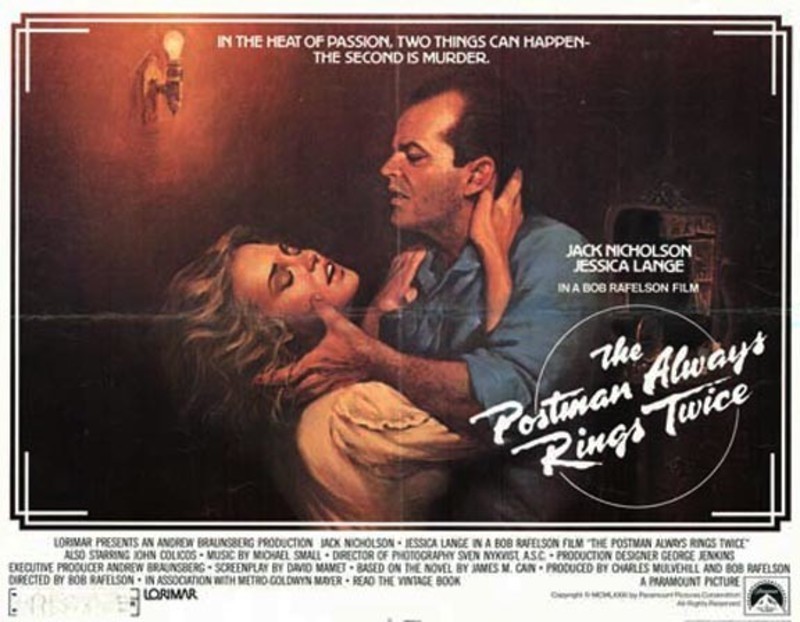 It's a bond that was sealed early on. Five Easy Pieces cast Nicholson as a middle-class drifter. The King of Marvin Gardens, which followed, made him a late-night DJ. Both films were close to Rafelson's own life. In the Fifties he had drifted round the world, and talked into the night as a DJ in Japan. But looked at now, Five Easy Pieces, at least, is also striking for its anti-hero's closeness to what would become Nicholson's own classic persona. He's too bright for the people around him, sexual, his grin a distraction from the anger in his eyes. If this was a shared biography, who was who when the two began? Was Rafelson at the root of the Nicholson we've come to know?
It's a bond that was sealed early on. Five Easy Pieces cast Nicholson as a middle-class drifter. The King of Marvin Gardens, which followed, made him a late-night DJ. Both films were close to Rafelson's own life. In the Fifties he had drifted round the world, and talked into the night as a DJ in Japan. But looked at now, Five Easy Pieces, at least, is also striking for its anti-hero's closeness to what would become Nicholson's own classic persona. He's too bright for the people around him, sexual, his grin a distraction from the anger in his eyes. If this was a shared biography, who was who when the two began? Was Rafelson at the root of the Nicholson we've come to know?
"Don't confuse entirely the part and the actor playing the part," Rafelson cuts in. "You see Jack Nicholson in a role and 30 years later you see him in a role, and by now this routine of his has become so familiar that you wonder whether he can act or not. Because you've seen it all. So Jack is charming and Jack does have those eyebrows, and there was that kind of sexuality in the piece, and yeah, that's true of Jack. But it's probably true of the director of the film, and somewhat true of the producer of the film. Of all the movies he's made in his life, The King of Marvin Gardens (pictured below with Bruce Dern and Nicholson) is the one that's furthest away from his character. He's an unsmiling, charmless, uptight nerd."
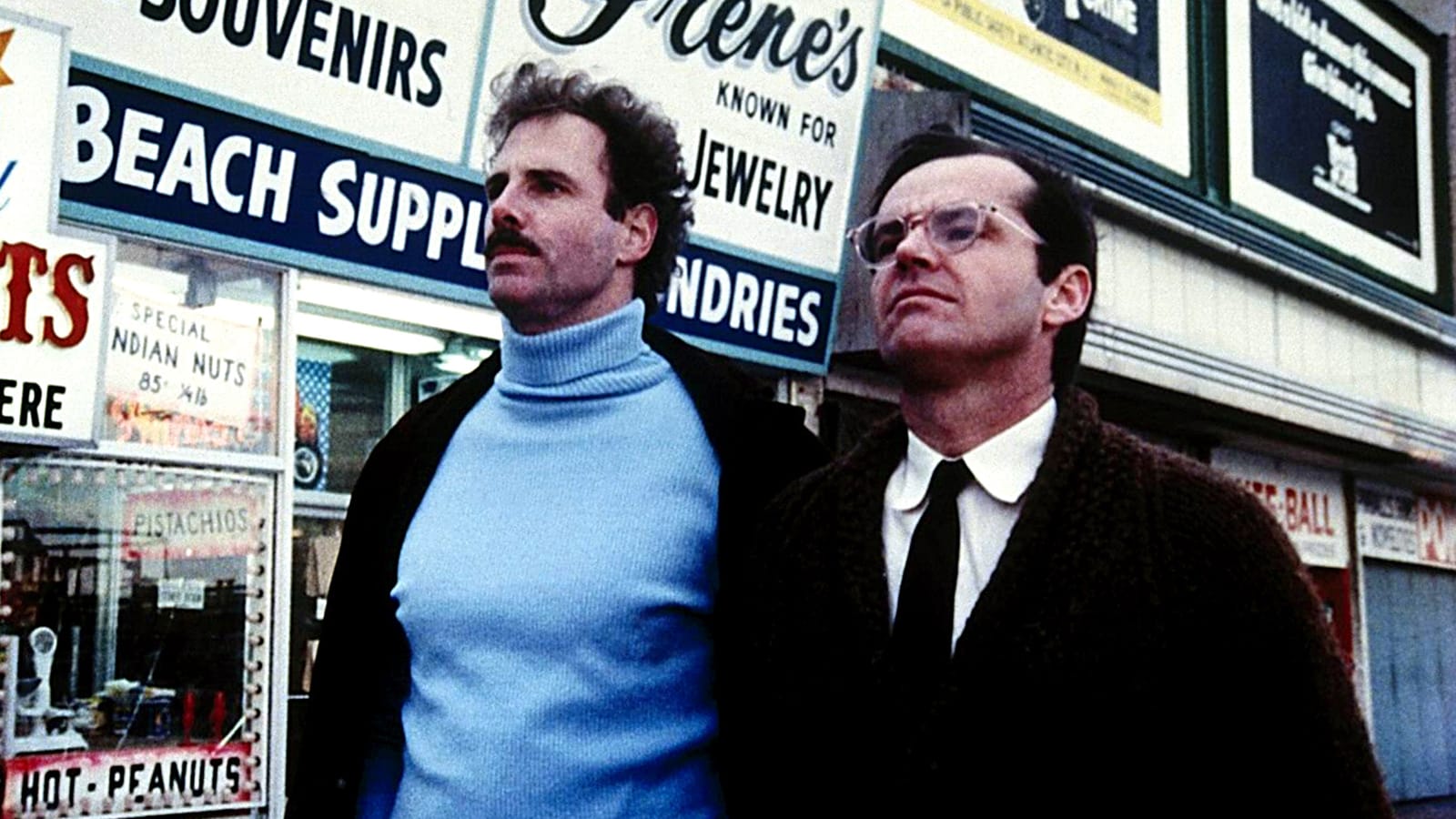 But Rafelson has talked about Nicholson as his alter ego. Is it more complex than that? Does he reject the term? "Nicholson plays in a lot of movies where I'm trying to figure out certain things," Rafelson sighs, impatient. "But they're pretty universal things. I don't take pride in the fact that it's my life story that Jack is playing. I don't think of it that way. Not at all. It's never discussed between us when we work. We might talk about his life, for a fraction, for a moment, which he would consider very, very unfair. Jack has enough to do relating to his daughter, and to life and fiction and everything else. He doesn't need me to base a performance on."
But Rafelson has talked about Nicholson as his alter ego. Is it more complex than that? Does he reject the term? "Nicholson plays in a lot of movies where I'm trying to figure out certain things," Rafelson sighs, impatient. "But they're pretty universal things. I don't take pride in the fact that it's my life story that Jack is playing. I don't think of it that way. Not at all. It's never discussed between us when we work. We might talk about his life, for a fraction, for a moment, which he would consider very, very unfair. Jack has enough to do relating to his daughter, and to life and fiction and everything else. He doesn't need me to base a performance on."
After Marvin Gardens, the relationship with Nicholson loosened. The actor's career had gone into orbit by the end of the Seventies, moving him away from his low-budget roots. Rafelson continued on his own, drifting again, taking years to research projects in far corners of the world. His life had become something that his films couldn't really contain, and which Hollywood didn't want. The next decade held few highlights. Mountains of the Moon (1988), about a Victorian explorer, fused his own travelling with a veiled assault on his Hollywood enemies, but few saw it. Even a film with Nicholson, Man Trouble, was a botched job, disowned. His career seemed to be grinding to a halt. He did have one idea he'd been picking at. He had talked about it with Nicholson. But he knew the film would be dark, low-budget, too low to pay his friend. Until Nicholson saw the script, and insisted. The collaboration would continue after all.
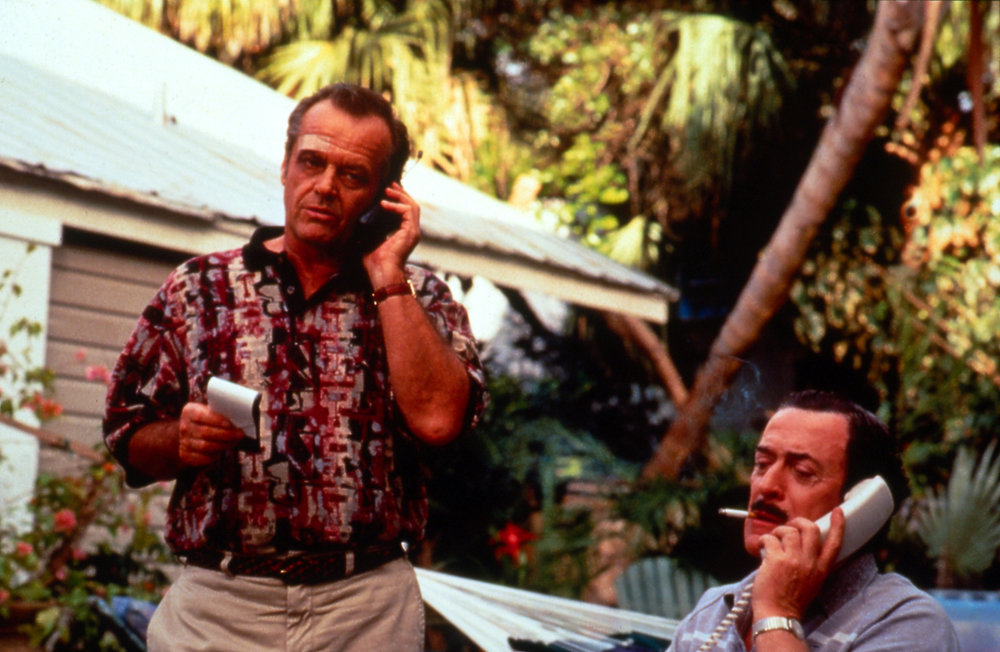 Blood and Wine is the result, a return to form for them both. Nicholson plays a worn-down man who is tempted into crime. Attempting to retrieve a stolen necklace, he abandons his wife, his stepson, his morals. He stalks through the film like a storm-cloud, needing to blow something apart. "It is about someone who descends into evil," Rafelson concedes. Nicholson reaches his nadir searching a crashed car in which his wife and stepson have been trapped, fingering his wife's bloody panties as he hunts for the necklace, ripped between disgust and desire. "Best scene in the movie," Rafelson says, delighted. It goes further than most audiences would expect these days. "Fuck 'em. What do you want from me? If I'm not going to take you as far as you can go, I don't want to take the bus that way. I wish I could go further. I wish I had the talent to go further."
Blood and Wine is the result, a return to form for them both. Nicholson plays a worn-down man who is tempted into crime. Attempting to retrieve a stolen necklace, he abandons his wife, his stepson, his morals. He stalks through the film like a storm-cloud, needing to blow something apart. "It is about someone who descends into evil," Rafelson concedes. Nicholson reaches his nadir searching a crashed car in which his wife and stepson have been trapped, fingering his wife's bloody panties as he hunts for the necklace, ripped between disgust and desire. "Best scene in the movie," Rafelson says, delighted. It goes further than most audiences would expect these days. "Fuck 'em. What do you want from me? If I'm not going to take you as far as you can go, I don't want to take the bus that way. I wish I could go further. I wish I had the talent to go further."
It's praiseworthy that Nicholson, at this stage in his career, should still want to go with him. Do they intend to continue their collaboration? Will it really be the lifetime project they dreamed of? "He's a good pain in the ass, and this is the last one," Rafelson deadpans. "Fuck him. I'll go out and find somebody else to direct. He's not gonna do no grandpa story with me, I'll tell ya that."
Blood and Wine does feel like the end of something, for all Rafelson's tough talk. Its final shot is of the edge of America. It feels like a terminal film.
"I think it probably is," Rafelson says, not bothered. He considers for a moment. "Terminal. I like the sound of that."

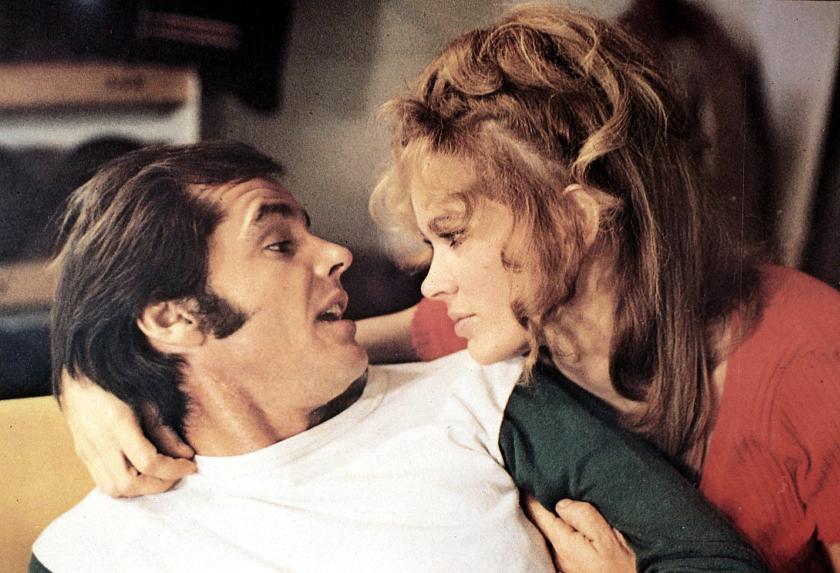













Add comment